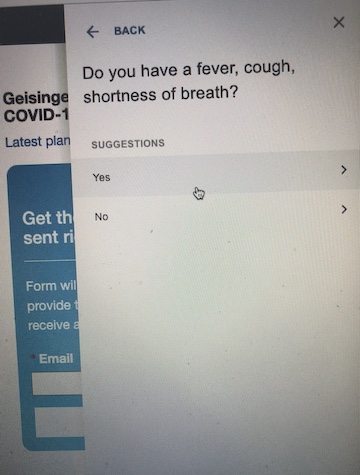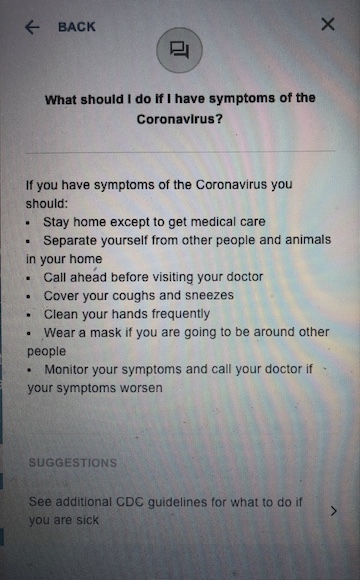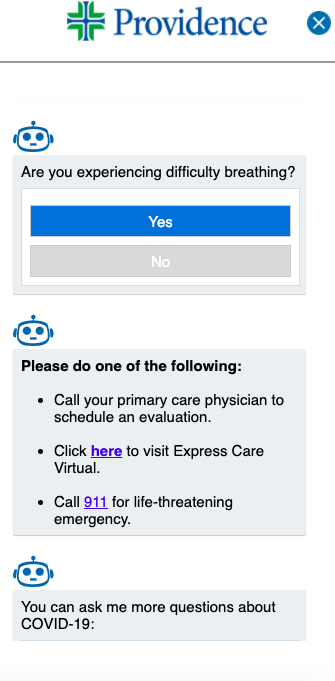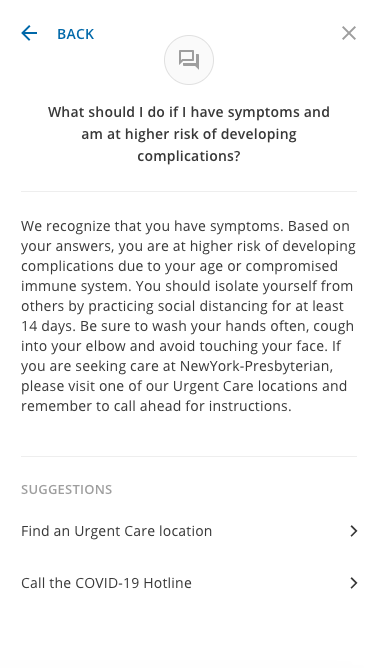Executives at Syllable, the Sunnyvale-based chatbot and voice bot company, thought they were in a very good place when customers like New York-Presbyterian, Houston Methodist and Northwell Health came and asked if they could create a chatbot and phone bot to deal with the public’s Covid-19 queries in early March. The health systems were slowly getting overwhelmed by the volume recalled Adam Silverman, chief medical officer of Syllable, in an interview Thursday.
Days earlier senior executives had already developed a tool that could be deployed easily on a health system’s website. So they decided to offer it those customers as well as Geisinger Health System for free. But within a few days, the tool proved insufficient.

With the Rise of AI, What IP Disputes in Healthcare Are Likely to Emerge?
Munck Wilson Mandala Partner Greg Howison shared his perspective on some of the legal ramifications around AI, IP, connected devices and the data they generate, in response to emailed questions.
On Thursday, March 19, if you visited one of those health systems powered by the Syllable chatbot, the tool was mainly offering links to the CDC. If concerned people typed “Yes” to the question “Do you have a fever, cough and shortness of breath?” the chatbot — as seen below on Geisinger’s website — would merely respond with information:
Compare that to Grace, the coronavirus assessment chatbot from Providence St. Joseph Health that collects information on which state people using the tool are based, whether they have traveled abroad and several questions that provide more data to the chatbot to be able to respond appropriately. Here’s what I entered:
- I was based in California,
- I had not been tested for Covid-19,
- I hadn’t traveled to any of the Asian or European nations caught up in the virus maelstrom,
- I had never been in contact with anyone who had traveled to these same countries
- I had been in contact with a Covid-19 patient,
- I hadn’t been told by any public official that I may have been exposed to the novel coronavirus
- I was having symptoms
To clarify, I simply made up these responses. I am not having any symptoms, nor have been exposed to anyone with Covid-19 but here’s how Grace responded:
The tool is fairly sophisticated allowing people the ability to schedule an online telehealth visit with a clinician – ExpressCare Virtual. The chatbot was built with the help of Microsoft’s AI, said Dr. Amy Compton-Philips, the chief clinical officer of Providence St. Joseph, in a webinar held a few weeks ago.
Meanwhile, as time progressed Syllable executives were seeing a pattern in both data derived from the phone bot and chatbot that suggested that version 1 of the tool wasn’t really helping. People had moved from simply looking for information to looking for instructions on what they need to do. Silverman from Syllable explained that in the early part of the week of March 9th the top three questions were:
- Can I travel?
- Should my kids go to school?
- Do I have coronavirus and so what are the symptoms?
That changed by March 13.
“So I say, the week of March 9 people were in information-gathering mode. And then as the media ramped up and the seriousness started to ramp up and people started talking about doing social distancing, suddenly people were no longer happy just getting information. They wanted service,” Silverman said.
At that time, the top three responses were:
- I think I have coronavirus
- Do you offer testing?
- I need to see a doctor for coronavirus
“So [it was] a major shift in what people were looking for. So our web bot needs to change too and so we worked with our health systems to give them this intelligence and tell them that we really need to start thinking of a new workflow about how you want people triaged and where you want people to go.” he said. “At this point in time, it’s not about education. At this point in time, it’s about getting people treatment.
Syllable quickly adjusted to the queries and launched a new version of the tool on March 20. The tool collects information on whether people responding to the chatbot are over the age of 60, whether they have underlying chronic conditions and whether they have recently experienced difficulty in breathing. Once the information is collected, based on responses, it provides a more detailed response like the one below from New York-Presbyterian [Click on the red Covid-19 circular bubble on the bottom right to launch the tool]:
Silverman said he is calling these prompts to help the public determine their individual situation “directives.”
“We want to give them directives and be much more action-oriented because to me in reading the responses that we were getting people quickly got frustrated because they wanted to know what they should do when they’re not feeling well,” he said.
Many technology companies are launching chatbots and other tools to provide service at this hour of great need. Being able to quickly adjust to changing circumstances is equally important.
Photo: venimo, Getty Images
Update: Since the interview last week on Thursday, Syllable is now offering triage for testing facilities at Northwell Health, and triage for telemedicine at NewYork-Presbyterian.



















